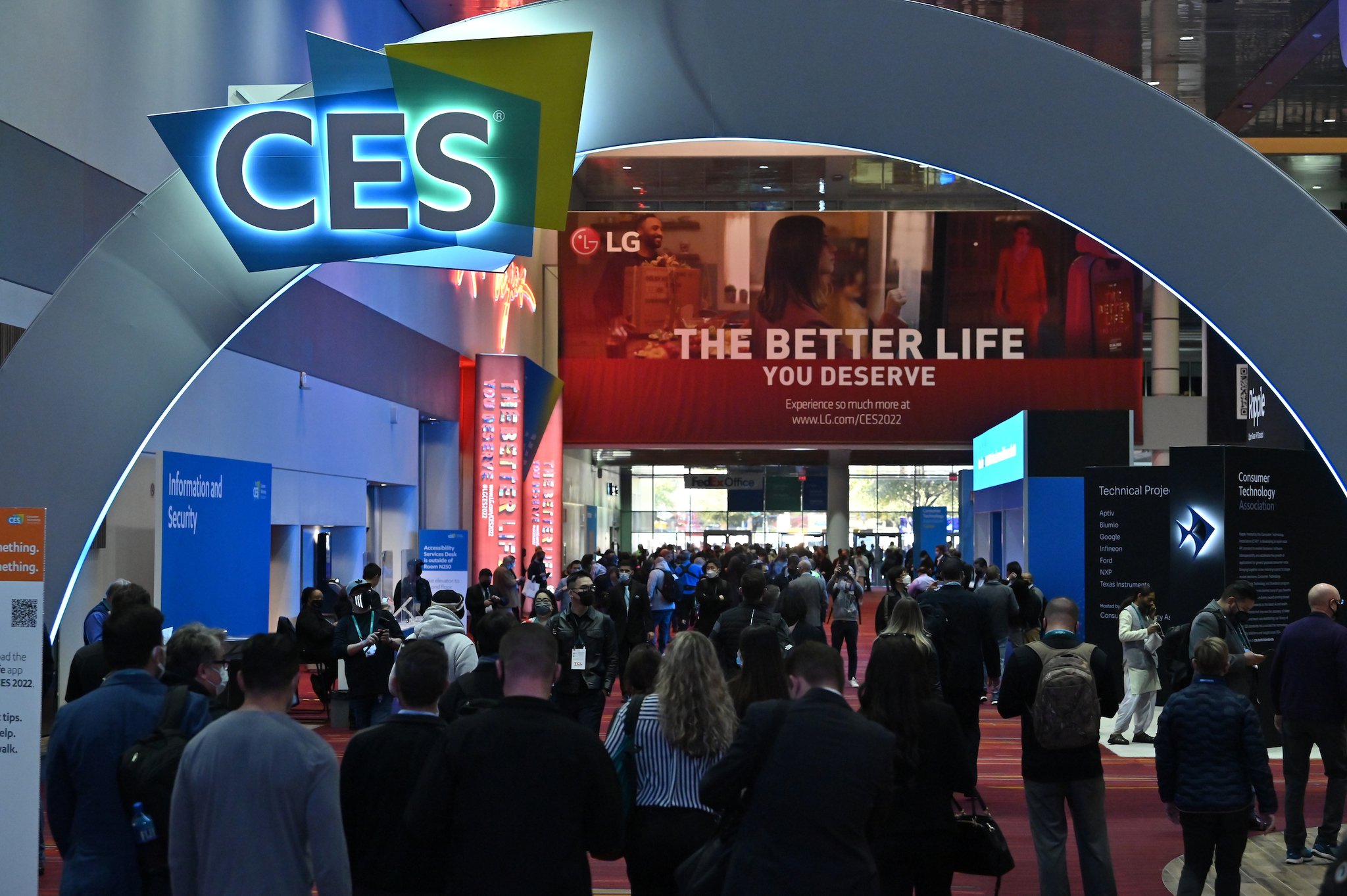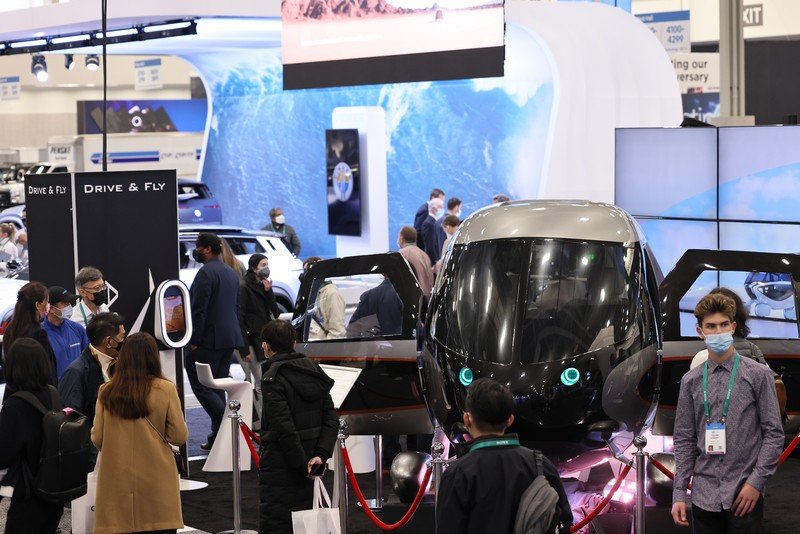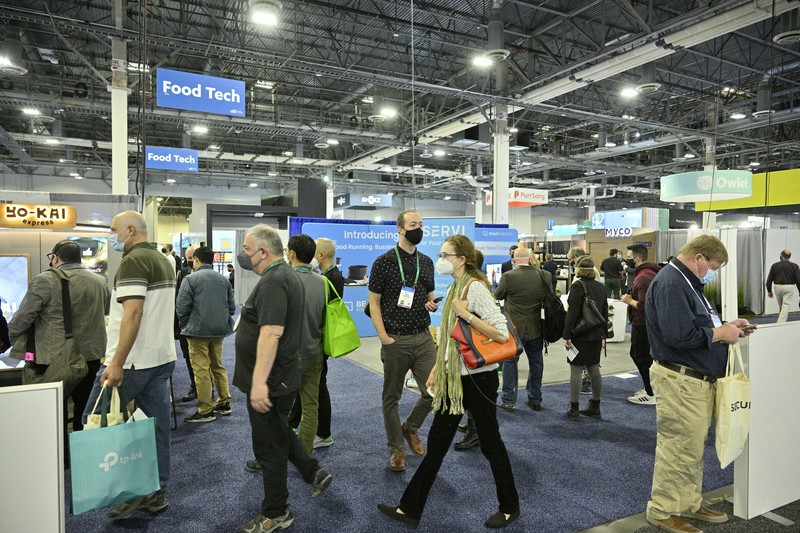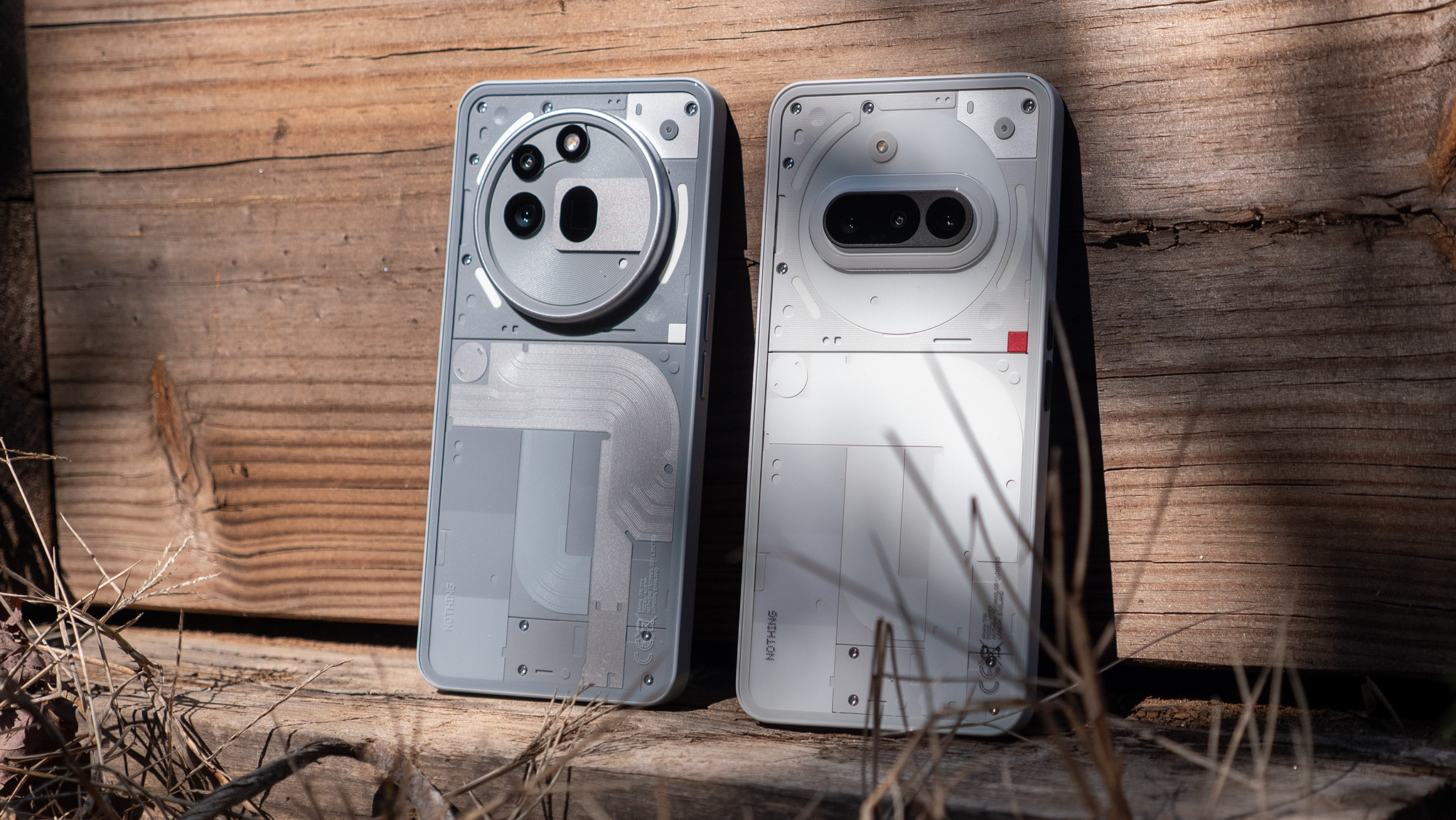CES's snazzy product launches couldn't mask the problems behind the scenes

Get the latest news from Android Central, your trusted companion in the world of Android
You are now subscribed
Your newsletter sign-up was successful
CES 2022 was half-virtual, half in-person, and 100% messy, with many of its major announcements coming from companies that has already fled Las Vegas due to COVID concerns. With some tech conferences like MWC plunging ahead with in-person plans while others like E3 preemptively go virtual-only, tech companies and journalists alike have to reimagine how trade shows fit into our new normal.
Many tech sites and CES attendees have speculated that CES 2020 was one of the original super-spreader events for COVID-19, back when no one could reasonably understand what was happening. This year, CES 2022 took place amidst the raging Omicron variant, with everyone involved fully aware of the risks.
"CES will and must go on." Apparently.
"CES will and must go on." So said Consumer Technology Association CEO Greg Shapiro in an opinion piece for the Las Vegas Review Journal, despite most major tech companies and journalism orgs pulling out in response to Omicron. In his words, cancelling would "hurt thousands of smaller companies...counting on CES for their business," while the risk of COVID-19 spread would be "minimal."
Beyond Shapiro's noble vision of CES as "representing the best of our unique American history," money obviously played a role in the decision. KTVU reports CES 2020 brought about $300 million in revenue to Las Vegas, with average visitors spending nearly a grand according to the Review Journal. But thanks to the virtual-only CES 2021, those spend-happy tech tourists largely stayed home.
Another day at #CES pic.twitter.com/JLuN86eQwaAnother day at #CES pic.twitter.com/JLuN86eQwa— Heather Delaney (@DivertingLife) January 4, 2022January 4, 2022
For Las Vegas and CES, a cancelled or virtual CES 2022 was not an option. Even with initial estimates numbering 2022 attendees at just 50-75K, the organization and the city will make tens of millions it would otherwise have lost. Even if boosted and masked attendees still catch the variant and carry it back across the country, Nevada won't bear the brunt of the medical costs. Why wouldn't they insist on an in-person event?
Tech showcases aren't for us anymore

More importantly for tech fans, some smaller companies managed to go viral (sorry) with their in-person booth demos, in a way they would never have been able to with press releases buried in crowded inboxes.
People paid the most attention to the OnePlus 10 Pro, Playstation VR 2, conceptual Samsung foldables, a new Acer Chromebook destined to be among the best of the year, and other major brands' announcements.
Get the latest news from Android Central, your trusted companion in the world of Android
But just as often, we saw Twitter threads on corny Metaverse tie-ins, hyperrealistic robots, and promising experimental tech that'll probably be consumer-ready in a few years, like Somalytics' paper-thin sensors for tracking 3D gestures. In-person CES does give smaller companies a chance to shine.
Ameca is a humanoid robot with uncanny realism #CES2022 pic.twitter.com/8hsIXxVAtoAmeca is a humanoid robot with uncanny realism #CES2022 pic.twitter.com/8hsIXxVAto— Rich DeMuro (@richontech) January 6, 2022January 6, 2022
Remote events take away our ability to see through the PR-speak and properly test products.
If we had been able to fly to Las Vegas as originally planned, we could have actually tested out products in person instead of taking press releases at face value, and filmed some of the coolest demos to show you. We could see for ourselves what is hyped up and what truly deserves the hype, and receive more organic and relevant answers from developers during demos than over email.
Instead, the only CES tech product we could put through its paces was the Galaxy S21 FE, which Samsung would have sent us for review regardless.
Still, a controlled, limited hands-on on a show floor isn't likely to show the true measure of a device, just as an E3 demo relies on cutscenes and pre-recorded gameplay to hide the jank underneath. Really, CES is there to get journalists and enthusiasts to buy into the potential of whatever newfangled trend vendors are pushing — which is why we saw so much about the Metaverse this year.
There's a reason CES isn't called "Consumer Electronics Show" anymore. We enjoy the marketing blitz because it gives us a glimpse at potential futures. But more and more, CES is about selling proofs of concept rather than products we'll ever see on a store shelf. Vendors hope to gain enough attention from their patented idea to get acquired by a well-known tech brand or attract some seed money, while the biggest companies trawl CES looking to acquire innovation externally.
The overriding theme from many people I've spoken to at #ces so far is that is kinda boring. Not surprising given the number of companies that have bowed out but the normally packed media days are very quiet. A very weird showThe overriding theme from many people I've spoken to at #ces so far is that is kinda boring. Not surprising given the number of companies that have bowed out but the normally packed media days are very quiet. A very weird show— Nirave 尼拉夫 (@nirave) January 4, 2022January 4, 2022
With the tech industry so coalesced around the largest monopolistic brands, events like CES have become harder for everyday people to enjoy. Any major announcements have probably been leaked already, whereas the smaller announcements may never show up on Amazon.
The "unprecedented times" keep sticking around

If the Omicron variant had emerged a few months earlier, circumstances may have forced CES to close whether the organizers wanted to or not. But the sunk-cost fallacy and some metaphorical sticking-of-fingers-in-ears helped them to proceed. Other 2022 tech events won't be as lucky until conditions improve...again.
If this is the new normal, tech showcases will have less publicity to offer client vendors.
I lack the scientific expertise to predict how the ebbs and flows of COVID-19 will pan out by the time CES 2023 rolls around. But we've all heard the platitudes about "living in uncertain times" in commercials for the past two years, and this pandemic keeps stubbornly sticking around. Nowadays, whether or not a tech showcase proceeds in person is all about fortuitous timing and a collective desire to want things to return to normal.
Google, Apple, Samsung, and other popular brands can keep using their own livestreams for product launches because they know people will tune in. But other companies have to put their employees' health on the line to make an impression at tech events, with diminishing returns because the journalists, retailers, or venture capitalists they're pitching to may not even show up. In that scenario, why not just blast out a press release and hope for the best?
I've brought up E3 a couple of times because it's an example of a former heavyweight in its respective industry that has lost a lot of its clout. Now the major gaming brands also have found more ways to deliver major news directly to consumers, like Nintendo Directs; and smaller indie devs have had to find other ways to market their games like sending games to YouTubers.
I'm not saying CES, MWC, and the other tech events hurt by the pandemic are dead or dying; in many ways, people stuck at home in depressing conditions will gravitate towards "tech of the future" because we'd rather live in the future than the present. And behind the scenes, Forbes claims, events like CES still generate deals between vendors and retailers for up to hundreds of billions of dollars per year — though it's unclear how much of that money usually goes to the heavy hitters like Samsung.
But I do wonder if these "unprecedented times" will bring on a new normal for tech, where smaller companies also use new direct-to-consumer/investor marketing schemes instead of relying on tech events that may or may not happen to make a splash.

Michael is Android Central's resident expert on wearables and fitness. Before joining Android Central, he freelanced for years at Techradar, Wareable, Windows Central, and Digital Trends. Channeling his love of running, he established himself as an expert on fitness watches, testing and reviewing models from Garmin, Fitbit, Samsung, Apple, COROS, Polar, Amazfit, Suunto, and more.
